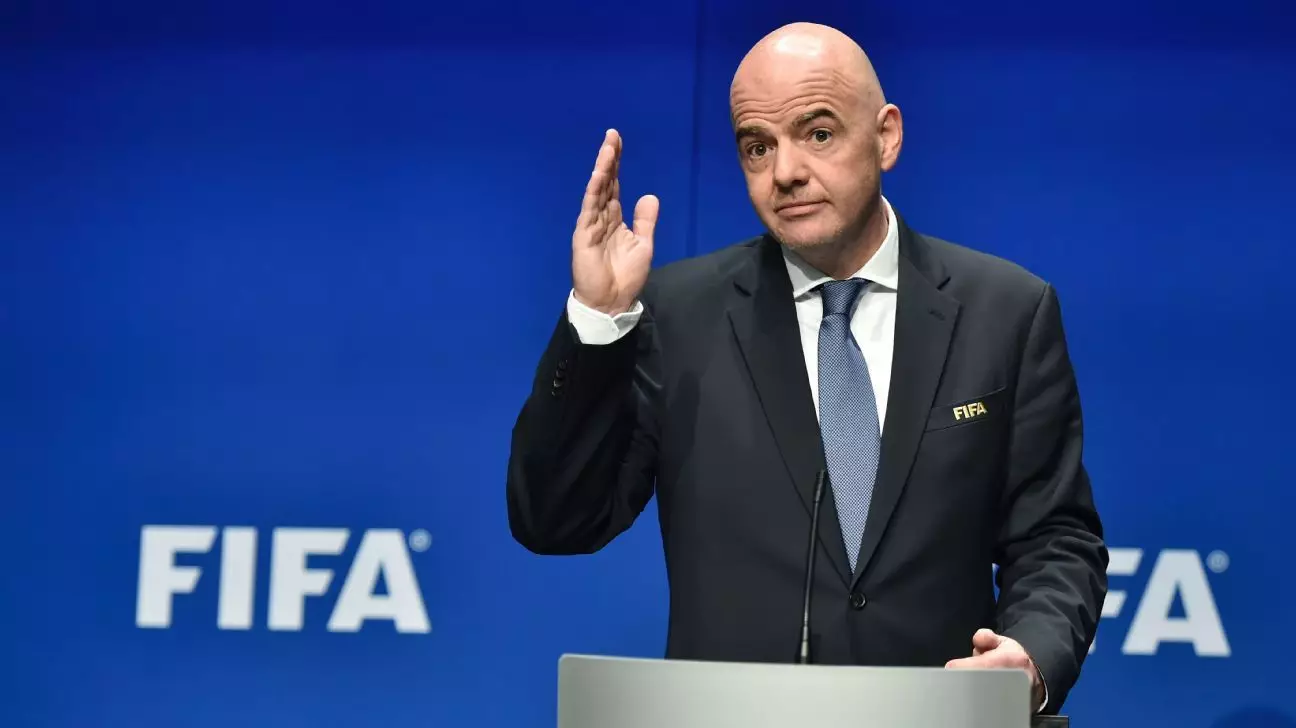The recent decision by FIFA to add new and larger competitions to the already congested men’s international football calendar has sparked controversy and criticism. The global players union FIFPRO, in collaboration with the World Leagues Association, has sent a letter to FIFA warning of potential legal action if the organization does not reconsider its actions. The letter, obtained by The Associated Press, accuses FIFA of making unilateral decisions that prioritize its own competitions and commercial interests, such as the World Cup and the upcoming 32-team Club World Cup.
One of the primary concerns raised in the letter is the impact of FIFA’s decision on players and national leagues. The continuous addition of games and competitions without adequate consultation with stakeholders is deemed “inherently abusive” by the unions. They argue that these changes place an undue burden on players and leagues, forcing them to adapt to an increasingly demanding schedule. The revamped Club World Cup, scheduled to take place in the United States in June 2025, is set to feature some of the top clubs in the world, including Champions League finalists Real Madrid and Borussia Dortmund. This tournament will serve as a precursor to the expanded 48-team World Cup to be held across the U.S., Canada, and Mexico one year later.
FIFPRO and the World Leagues Association are calling on FIFA to reconsider its decision regarding the Club World Cup and the Intercontinental Cup set for this December. They are urging FIFA to reschedule these events and engage in discussions to revise the international match calendar through 2030. The lack of consultation and collaboration with leagues and players on these matters has led to mounting pressure on FIFA to address the concerns raised in the letter before the upcoming council meeting in Bangkok, Thailand.
The growing number of competitions and games in the international football calendar has financial implications for FIFA. The organization is projected to generate over $11 billion in revenue from 2023-26, a significant increase from previous years. Additional revenue sources, such as the expanded Club World Cup and sponsorship deals with companies like Saudi Arabian state oil firm Aramco, are expected to contribute to FIFA’s financial growth. However, these financial gains come at a cost to players and leagues, as the increased workload and fixture congestion pose risks to player welfare and the ability of leagues to operate effectively.
FIFA president Gianni Infantino has defended the expansion of competitions and the financial incentives associated with them. He argues that the additional revenue and playing opportunities are necessary to elevate teams from regions outside of Europe and South America, which have traditionally dominated international competitions. While FIFA’s decision may have noble intentions of promoting inclusivity and diversity in football, the manner in which these changes are implemented without consultation or regard for player welfare has drawn criticism and threatens the balance between commercial interests and the integrity of the sport.
